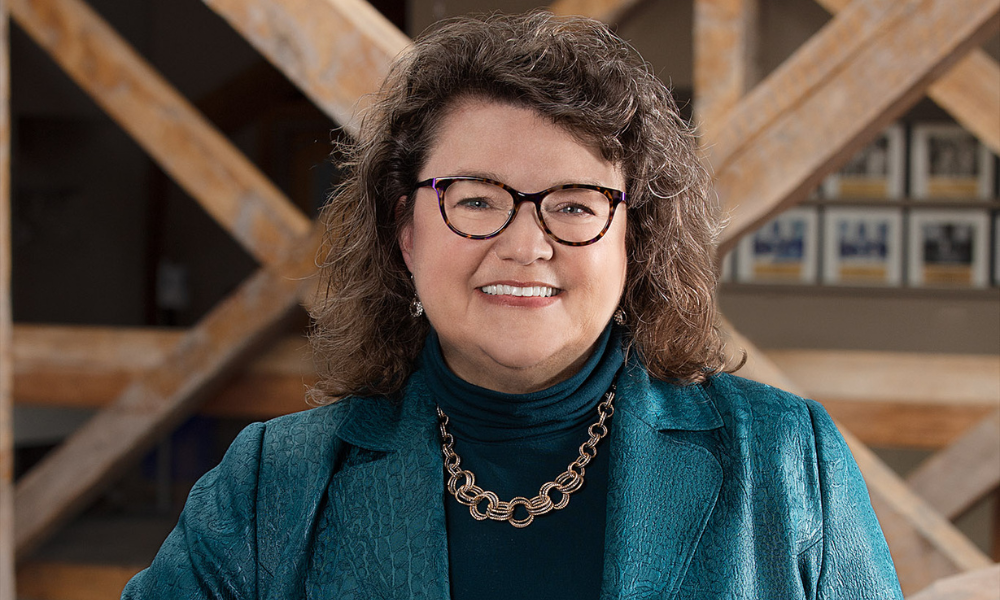
Employers such as Loyalist College, YMCA and Quinte Health sign on to new initiative

An Ontario city is putting inclusion front and center for employers – and the initiative is gaining momentum.
Earlier this year, the City of Belleville – situated on the eastern end of Lake Ontario – created the Workplace Inclusion Charter, which aims to create and promote safe workplaces for marginalized and equity deserving populations, including newcomers, people with disabilities and Indigenous people, among others.
“The charter was a commitment on the part of the City of Belleville to both being a more inclusive workplace, but also in inspiring other city businesses and organizations to focus on inclusion as well,” says Heather Candler, director of economic development.
The charter itself is a written statement that lives on the city’s website.
By signing on the charter, employers commit to develop a one-year diversity and inclusion plan.
The charter points to significant statistics that highlight the need for diversity in the workplace.
“The Centre for Workforce Development (CFWD) Local Labour Market Plan 2022 indicated that there were just under 2,000 unemployed clients being assisted by Employment Ontario job programming,” according to the charter. “Of those, 48 per cent were women, and 33 per cent identified as a vulnerable population including Indigenous, racialized persons, newcomers, francophones and persons with disabilities.”
Meanwhile, the CFWD EmployerOne Survey for 2022 noted that 61 per cent of local employers have not hired a New Canadian, according to the charter.
However, the charter actually came out of the economic development arm of the city, not human resources, says Candler.
The initial goal was “to support local employers in attracting employees and workers to come to the area,” she says.
“We wanted to talk about inclusivity. And we really wanted to inspire employers to be thinking more broadly than just a local community, and to be thinking about how to make newcomers welcome and how to create a great experience for newcomers in the community.”
Immigrants tend to do worse when it comes to finding a suitable job compared with non-immigrants, according to a previous report from RBC.
In March 2023, the City of Belleville became Belleville’s first workplace to adopt the Workplace Inclusion Charter. By doing so, it made annual commitments to develop Inclusion plans and do its part to create a welcoming community.
“We couldn't create a charter like this and not sign on ourselves,” says Candler. “It's incredibly important that we be the model for what we hope to see in the city.”
And it has been gaining momentum ever since, she said.
“We've now had eight workplaces that have signed on… I expect we'll double that number in the next month, and so on and so on.”
And the City of Belleville is expanding the program by working with local community partners. It hopes to soon be working with the Canadian Chamber of Commerce.
The city is also holding information sessions on the charter and diversity and inclusion for local businesses and local human resource professionals.
By doing that, it gives stakeholders “a snapshot of what's involved, how to develop a plan, what local resources are available,” says Candler.
Once employers sign the charter, the Belleville government puts their logo on its website. By doing so, the city is helping employers attract workers and is highlighting other DEI efforts they already have in place.
“This is not only a labour force attraction tool, but it has also become a business recognition tool for the city.”
When employers sign up, the city government’s communications department reaches out to them and supports them in developing joint press releases. These releases talk about what the employers are doing, what they hope to do in their future and what their goals and aspirations are.
“If you have businesses and organizations that are already doing something, it encourages them to create an actual plan, and it gives them publicity for the plan,” says Candler.
“But if you're a company that hasn't yet started down this path, the win for you is you have models now of how this is done… So it begins to create inspiration.”